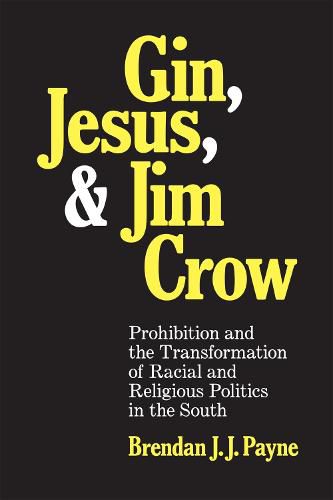Readings Newsletter
Become a Readings Member to make your shopping experience even easier.
Sign in or sign up for free!
You’re not far away from qualifying for FREE standard shipping within Australia
You’ve qualified for FREE standard shipping within Australia
The cart is loading…






In Gin, Jesus, and Jim Crow, Brendan J. J. Payne reveals how prohibition helped realign the racial and religious order in the South by linking restrictions on alcohol with political preaching and the disfranchisement of Black voters. While both sides invoked Christianity, prohibitionists redefined churches’ doctrines, practices, and political engagement. White prohibitionists initially courted Black voters in the 1880s but soon dismissed them as hopelessly wet and sought to disfranchise them, stoking fears of drunken Black men defiling white women in their efforts to reframe alcohol restriction as a means of racial control. Later, as the alcohol industry grew desperate, it turned to Black voters, many of whom joined the brewers to preserve their voting rights and maintain personal liberties. Tracking southern debates about alcohol from the 1880s through the 1930s, Payne shows that prohibition only retreated from the region once the racial and religious order it helped enshrine had been secured.
$9.00 standard shipping within Australia
FREE standard shipping within Australia for orders over $100.00
Express & International shipping calculated at checkout
In Gin, Jesus, and Jim Crow, Brendan J. J. Payne reveals how prohibition helped realign the racial and religious order in the South by linking restrictions on alcohol with political preaching and the disfranchisement of Black voters. While both sides invoked Christianity, prohibitionists redefined churches’ doctrines, practices, and political engagement. White prohibitionists initially courted Black voters in the 1880s but soon dismissed them as hopelessly wet and sought to disfranchise them, stoking fears of drunken Black men defiling white women in their efforts to reframe alcohol restriction as a means of racial control. Later, as the alcohol industry grew desperate, it turned to Black voters, many of whom joined the brewers to preserve their voting rights and maintain personal liberties. Tracking southern debates about alcohol from the 1880s through the 1930s, Payne shows that prohibition only retreated from the region once the racial and religious order it helped enshrine had been secured.